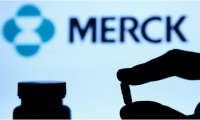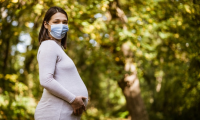-
FTC sues to block Amgen’s $28B Horizon buy in alarming sign for biopharma M&A
- Source: drugdu
- 127
- May 18, 2023
-
Novel Rutgers COVID vaccine may provide long-lasting protection
- Source: drugdu
- 137
- May 10, 2023
-
As COVID vaccine sales plummet, BioNTech looks for new growth opportunities
- Source: drugdu
- 133
- May 10, 2023
-
Manufacturing operations for Eli Lilly, Rentschler reprimanded by FDA
- Source: drugdu
- 189
- May 8, 2023
-
Algorithm generates 128-fold increase in antibodies
- Source: drugdu
- 245
- May 5, 2023
-
Bristol Myers Squibb and Tubulis partner in deal worth over $1bn
- Source: drugdu
- 149
- May 5, 2023
-
Medicare will cover Leqembi for all patients if FDA approves drug, CMS chief says
- Source: drugdu
- 121
- May 1, 2023
-
Merck results beat expectations despite a big drop in sales of Covid antiviral treatment
- Source: drugdu
- 127
- May 1, 2023
-
Hansa Biopharma enters into collaboration with Genethon
- Source: drugdu
- 129
- April 30, 2023
-
Pregnant women show unique immune response to COVID-19
- Source: drugdu
- 116
- April 17, 2023
your submission has already been received.
OK
Subscribe
Please enter a valid Email address!
Submit
The most relevant industry news & insight will be sent to you every two weeks.













